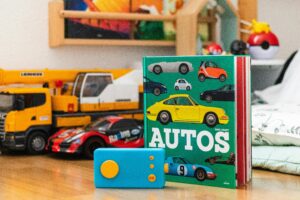Introduction:
Bringing the principles of Montessori education into your home can be a rewarding experience for both you and your child. In this comprehensive guide, we’ll explore practical strategies and tips for parents interested in creating a Montessori-inspired environment that fosters independence, curiosity, and a love of learning. Whether you’re new to Montessori or looking to enhance your existing approach, let’s embark on this journey together to unlock the full potential of your child’s development.
Creating a Prepared Environment:
The foundation of Montessori education begins with the creation of a prepared environment that supports independent exploration and learning. Here are some key principles to consider when setting up your home environment:
- Accessibility: Arrange toys, materials, and activities on low shelves or in designated areas where your child can easily access them without assistance. This encourages autonomy and self-directed learning.
- Order and Simplicity: Keep your home environment clutter-free and organized to promote a sense of calm and focus. Rotate toys and materials regularly to maintain interest and prevent overwhelm.
- Natural Materials: Choose toys and materials made from natural materials such as wood, metal, and fabric, rather than plastic. These materials engage the senses and promote a connection to the natural world.
- Child-Sized Furniture: Provide furniture and tools that are sized appropriately for your child, such as small chairs, tables, and utensils. This enables your child to participate fully in daily activities and develop practical life skills.
Fostering Independence:
Montessori education emphasizes the importance of fostering independence and self-sufficiency in children from a young age. Here are some practical ways to promote independence at home:
- Encourage Self-Care: Involve your child in daily routines such as dressing, grooming, and meal preparation. Provide child-friendly tools and step-by-step guidance to support their efforts.
- Allow for Choice: Offer your child choices whenever possible, such as selecting their own activities, snacks, or clothing. This helps them develop decision-making skills and a sense of autonomy.
- Respectful Guidance: Offer support and guidance to your child without over-directing or intervening. Allow them to learn through trial and error, and offer gentle encouragement and praise for their efforts.
- Foster a Growth Mindset: Emphasize the importance of effort, persistence, and resilience rather than focusing solely on outcomes. Encourage your child to embrace challenges and learn from mistakes.
Encouraging Exploration and Discovery:
Montessori education values hands-on, experiential learning as a means of promoting curiosity, creativity, and problem-solving skills. Here are some ways to encourage exploration and discovery at home:
- Provide Open-Ended Materials: Offer toys and materials that can be used in multiple ways and encourage open-ended exploration and creativity.
- Follow Your Child’s Lead: Observe your child’s interests and follow their lead when selecting activities and materials. Provide opportunities for them to pursue their passions and explore new interests.
- Create a Nature-Friendly Environment: Spend time outdoors exploring nature, observing plants and animals, and engaging in sensory experiences. Create a nature corner in your home where your child can display treasures collected from outdoor adventures.
- Foster a Love of Learning: Cultivate a love of learning by exposing your child to a wide range of experiences, from reading and storytelling to arts and crafts, science experiments, and music. Follow their curiosity and provide opportunities for hands-on exploration and discovery.
Conclusion:
By implementing Montessori principles at home, you can create an environment that nurtures your child’s natural curiosity, independence, and love of learning. By embracing the principles of preparedness, fostering independence, and encouraging exploration and discovery, you can provide your child with a solid foundation for lifelong learning and success. Remember, the journey of Montessori education is not about perfection but about fostering a supportive and enriching environment where your child can thrive and reach their full potential.



